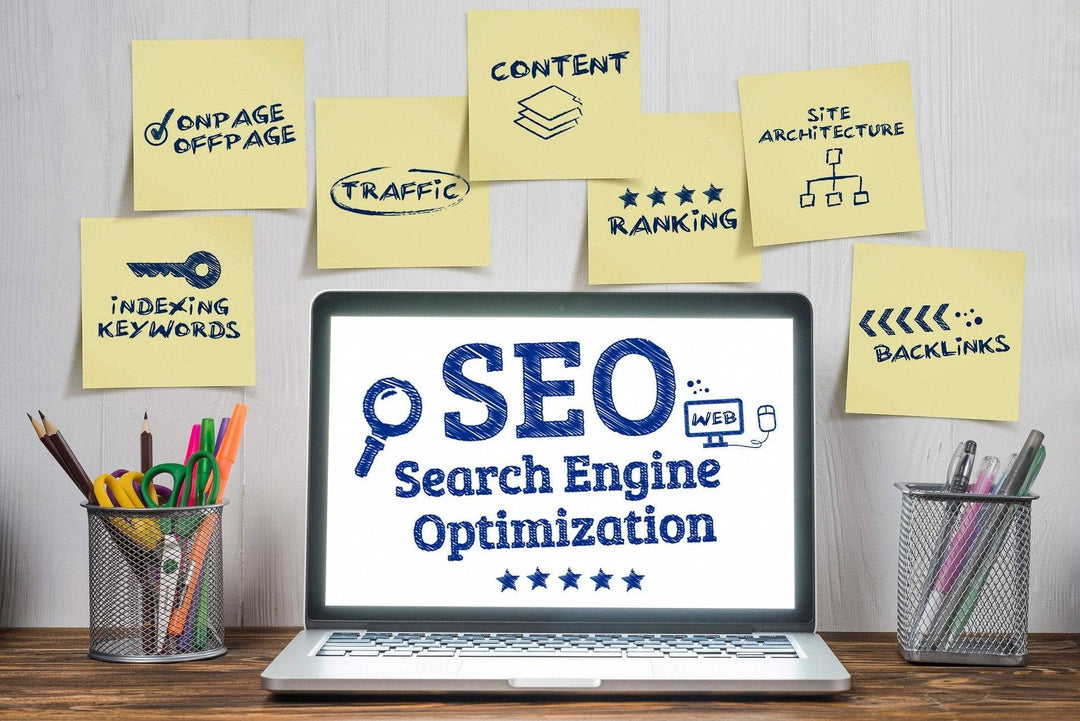Frequently Asked Questions
1. What is Shopify SEO and why is it important?
2. How can I conduct keyword research for my Shopify store?
3. What are some key elements to optimize on my product pages?
4. How can blogging benefit my Shopify store's SEO?
5. What are some effective internal linking strategies for my Shopify store?
When it comes to running a successful online business, having a well-optimized Shopify store is essential. In the competitive landscape of eCommerce, mastering eCommerce SEO optimization can make a significant difference in driving traffic to your store, increasing sales, and building brand loyalty. In this comprehensive guide, we will explore practical strategies and techniques to optimize your Shopify store for SEO, ensuring you stay ahead of the competition and up-to-date with the latest Shopify News.
Understanding Shopify SEO
Search Engine Optimization (SEO) is the art and science of enhancing your website's visibility on search engines like Google. The better your site ranks in search results, the more visitors you'll attract. For Shopify store owners, proper eCommerce SEO optimization is crucial to capitalize on organic traffic.
Shopify provides a platform that is inherently SEO-friendly, but there are specific steps you can take to ensure you're maximizing its potential. Let's dive into the essential elements of SEO optimization for your Shopify store.
Keyword Research: Your First Step to Success
Before implementing any SEO strategies, it's vital to conduct thorough keyword research. This process involves identifying the keywords and phrases your potential customers are typing into search engines when looking for products or services like yours.
How to Conduct Keyword Research
- Use tools like Google Keyword Planner, SEMrush, or Ahrefs to find relevant keywords.
- Focus on long-tail keywords that have lower competition but higher intent.
- Analyze competitor keywords to find new opportunities.
- Consider local SEO keywords if you have a physical presence.
Remember to prioritize quality over quantity; selecting the correct keywords will significantly impact your site's SEO performance.
Optimizing Your Product Pages
Your product pages are the heart of your Shopify store. Properly optimizing them is crucial to improve their visibility in search results. Here are some key elements to focus on:
Title Tags
Your title tags should include relevant keywords while accurately describing the product. Aim for titles that are concise and informative, ideally between 50-60 characters long.
Meta Descriptions
A well-crafted meta description can entice potential customers to click on your listing. Be sure to include your primary keywords and keep it to about 150-160 characters. Make it engaging; let customers know what to expect!
Product Descriptions
Your product descriptions should be unique, informative, and rich in keywords. Avoid copying manufacturer descriptions, as duplicate content can harm your SEO. Use engaging language to highlight features and benefits while incorporating targeted keywords strategically.
High-Quality Images
Images greatly influence the buying decision; however, they also play a role in SEO. Ensure that your images have descriptive file names and alt text. This not only improves accessibility but also helps search engines better understand what your images are about.
Leveraging Content Marketing
Creating valuable content on your Shopify store can significantly enhance your SEO efforts. Blogging is an effective way to engage your audience while targeting specific keywords and phrases relevant to your niche.
Why Blogging Matters
- Establishes authority: Sharing insights and expertise builds credibility.
- Improves ranking: Fresh, regularly updated content can boost your search rankings.
- Drives traffic: Informative articles can attract visitors interested in your products.
- Encourages sharing: Quality content is more likely to be shared on social media, increasing visibility.
Content Ideas for Your Shopify Store
Here are some content ideas to get you started:
- How-to guides related to your products
- Industry trends and Shopify News
- Customer testimonials and success stories
- Comparative analysis of different products in your niche
Enhancing Site Structure and Navigation
A well-structured and easy-to-navigate Shopify store enhances user experience and boosts SEO. Consider these enhancements:

Site Speed
Page load speed is a critical ranking factor. Optimize images, minimize code, and use a fast hosting service to ensure your store loads quickly. Tools like Google PageSpeed Insights can help assess and improve speed.
Mobile Optimization
With more shoppers using mobile devices than ever, your Shopify store must be mobile-friendly. Ensure your theme is responsive and test your site on various devices to provide an optimal user experience.
Readable URLs
Utilize clean and descriptive URLs. Instead of “example.com/products/123450”, a better option is “example.com/products/your-keyword”. This not only helps SEO but also improves user readability.
Implementing Internal and External Links
Linking plays a crucial role in SEO. Internal links guide users to relevant content within your store, while external links to authoritative sites can enhance credibility. Here's how to use them effectively:
Internal Linking Strategies
- Link relevant articles to product pages and vice versa.
- Create a logical hierarchy to guide users seamlessly through your site.
Building Backlinks
Backlinks from reputable sites act as endorsements for your content. You can acquire backlinks by:
- Guest blogging on industry-related websites.
- Collaborating with influencers who can share your content.
- Engaging in forums or communities related to your niche.
Utilizing Shopify Apps for SEO
Many Shopify apps can streamline your SEO efforts. Here are some categories to consider:
SEO Apps
Many dedicated SEO apps can help optimize meta tags, manage redirects, and analyze your site's overall health. Examples include:
- Plug in SEO
- SEO Manager
- Smart SEO
Analytics & Tracking
Understanding how visitors find and use your store is essential. Utilize tools like Google Analytics and Google Search Console to monitor traffic, understand user behavior, and receive insights about your SEO performance.
Staying Updated with Shopify News
The world of eCommerce is constantly evolving, with Shopify regularly releasing updates and new features. Staying informed about Shopify News is crucial for maintaining your store's optimization.
- Follow Shopify's official blog and forums to learn about new features.
- Join eCommerce and Shopify-related groups on platforms like Facebook and LinkedIn.
- Subscribe to newsletters from influential experts in the Shopify community.
Nurturing Customer Relationships
Your success doesn’t just rely on attracting visitors; nurturing relationships with your customers is key for long-term success. Here are ways to engage your audience:
Newsletter and Email Marketing
Build a mailing list to keep your customers updated about promotions, new products, and valuable content. Email marketing is a powerful tool that can drive traffic back to your store.
Social Media Presence
Utilize social media platforms to engage with your audience, share content, and promote your products. Creating a community around your brand can enhance customer loyalty and increase your reach exponentially.
Your Dream Store Awaits!
Optimizing your Shopify store for SEO is an ongoing process filled with opportunities. By focusing on crucial elements such as keyword research, content marketing, site structure, and staying updated with Shopify News, you can create a solid foundation for your online business. Embrace the power of eCommerce SEO optimization, and watch your store flourish. With consistent effort and dedication, you'll see the fruits of your labor reflected in increased web traffic and sales. Now, go forth and create the Shopify store of your dreams!
Visit the Shopify or Wix store of a fellow user by following this link to their store. Please note that this is a promotional link, and we are not responsible for the content of the linked store.






Leave a comment